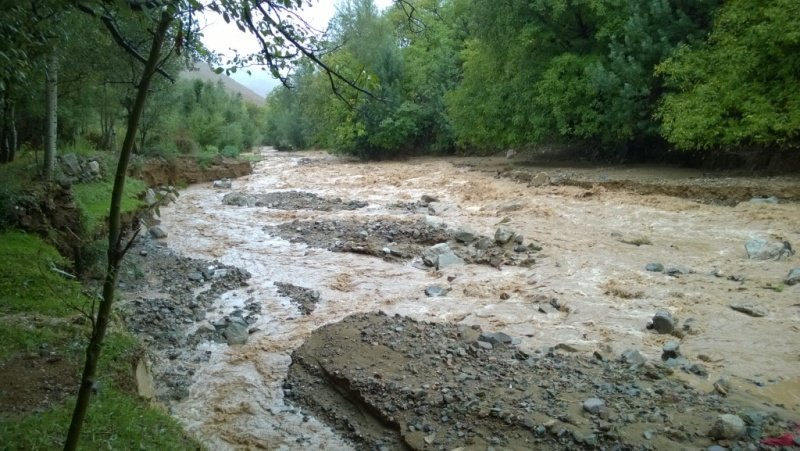By Dr. Yossef Ben- Meir | President of High Atlas Foundation
The Tassa Ourigane Irrigation Project in Morocco
The High Atlas Foundation is planning to start a project in the Tassa Ouirgane village, in the Ouirgane municipality of the Al Haouz province of Morocco. This region is considered to be the most disadvantaged in the country. The region suffers from drought, deforestation, and lack of water during the summer, and sudden floods during the winter. Climate change has extremely affected the area, many agricultural crops were damaged because of floods, and because of drought. In addition, more than 20 plant indigenous species are threatened in the area. Some farmers could not fully recover from the flood that occurred in 1995 which destroyed crop.
Moreover, the High Atlas Foundation, using the participatory approach to map and assess the needs of community members, has been meeting with local men and women in order to advance human development in Tassa Ouirgane. Community members focus on the problem of irrigation, since it is the agricultural foundation. Community members saw that the involvement of HAF is very important and the project will be benefiting them in having a productive agricultural lifestyle, harvesting their yields in season. Farmers are obliged to harvest in May/June rather than September/October because of the extreme drought that afflicts the area.
Moreover, climate change has reduced the overall amount of water available for irrigation as well as the seasonality of available water, while also creating extreme frequent storm events. The extreme flood event in 1995 has significantly reduced the riparian habitat for wildlife in the region in addition to destroying and damaging agricultural fields.
As a result, HAF’s project aims to recover and save the plant species in the area as well as animal species, to provide answers to these challenges by facilitating the restoration of important agricultural fields and establishing a walnut tree nursery, which in the medium term will regenerate vegetation cover including riparian habitat, fight against soil erosion, and encourage a sustainable source of income for the population.
The project has 3 main objectives. The first is to build up to 15 gabion structures that divert river flows away from farmland and riparian habitat. These structures will range from 20 meters to 80 meters in length. Second is to install a new well, a solar pump and storage tank, which will allow for water storage and irrigation of existing and reclaimed farmland, as well as vegetation and trees bordering fields. Third is to develop a community nursery production of walnut (extension of 0.5 ha) and 200,000 walnut seedlings will be produced there. Here the activities include grafting that will improve the local variety of walnut (improving resilience and productivity). The plants will be grafted with scions of selected good varieties known locally and in small numbers by the Bulgarian varieties introduced by the Ministry of Agriculture and Maritime Fisheries and the High Commission for Water and Forests and Desertification Control. A sustainable management plan for the nursery will be defined, including a plant dissemination plan, participatory and transparent manner in consultation with partners and communities, and the pursuit of organic certification.
Furthermore, HAF cares about sustainability, so capacity building of local stakeholders is very important in the project. The initiative will benefit 50 farmers and growers of plants from the nursery. Also, 15 workers will be working in the nursery, based on “train the trainer” approach and gender balance by including both men and women in the project and training.
Finally, the project includes capacity-building, information sharing, gabion construction, installation of a new well to ensure irrigation during dry seasons, tree nursery management, dissemination of seedlings and seeds, and the support for the valuation of walnut products and organic certification. This will generate sustainable profits in terms of the environment, quality of life, and personal income.
By Jacqueline Seeley | Director of Development
By Zach Witkin | Intern
Project reports on GlobalGiving are posted directly to globalgiving.org by Project Leaders as they are completed, generally every 3-4 months. To protect the integrity of these documents, GlobalGiving does not alter them; therefore you may find some language or formatting issues.
If you donate to this project or have donated to this project, you can receive an email when this project posts a report. You can also subscribe for reports without donating.
Support this important cause by creating a personalized fundraising page.
Start a Fundraiser